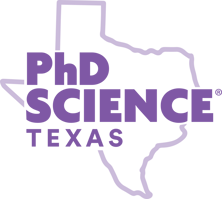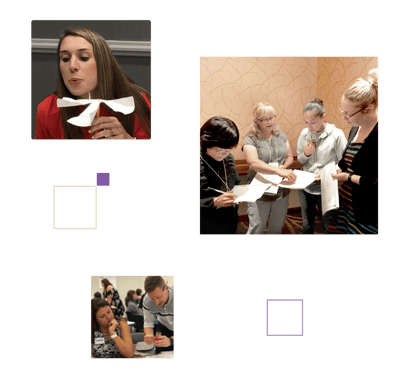
Professional Development
From the teacher–writers of PhD Science® Texas
Created by the team of teacher–writers behind PhD Science Texas, our in-person and virtual professional development (PD) sessions include options for teachers and leaders. These sessions ensure strong initial implementation as well as sustained success.

Private Professional Development
Come together with educators from your school or district for an in-person or virtual PD session. Great Minds® facilitators will work with up to 30 participants in each session.
Looking for modeling and observation of day to day classroom practices? Or to better understand the nuances of the curriculum so you can customize it in your classroom? If so, PhD Science Texas Personalized Coaching might be a good option for you.
PD to support new implementers and seasoned users of PhD Science Texas

FOUNDATIONAL PROFESSIONAL DEVELOPMENT
Foundational PD sessions build and deepen new educators' understanding of the curricular design and pedagogy of PhD Science Texas. Sessions help both teachers and science leaders learn how to implement PhD Science Texas with confidence.
Launch PhD Science Levels K–2, 3–5, and K–5
Educators explore instructional shifts within the curriculum's learning design, approach to knowledge building, and curricular structure through its use of authentic phenomena, hands-on investigations, and coherent storyline.
VIEW LAUNCH PhD SCIENCE TEXAS AGENDA
Lead PhD Science K–5
Leaders will learn how to support a successful implementation by developing knowledge of the curriculum components and learning design and identifying key indicators of a successful PhD Science Texas implementation.
VIEW LEAD PhD SCIENCE TEXAS AGENDA
Module and Lesson Study K–5
This session helps educators better understand the process of internalizing a module, including the progression of science content knowledge, standards addressed, assessments, and investigations.
VIEW MODULE AND LESSON STUDY AGENDA
Learn PhD Science Levels K–5
Choose from two of the three-hour sessions listed below to complete your foundational professional development journey.
- Discourse for a Student-Driven Classroom
- Using Models in a Student-Driven Classroom
- Using Questions to Drive Student Learning
These sessions cover important topics and components that are beneficial in laying a strong foundation for a successful implementation.
Building Knowledge with the Content Learning Cycle
Differentiation for a Student-Driven Classroom
Educators build upon their understanding of differentiation and explore additional differentiation resources as they plan and prepare for instruction.
Planning and Preparing by Using Checks for Understanding
Teachers see how the formative Checks for Understanding assessment tool can help them monitor learning as well as guide planning and instructional decisions.
Leveraging Related Phenomena
Teachers discover how to leverage related phenomena to support students in transferring and applying science content knowledge.



.png?width=111&height=100&name=TEXAS-Phd_LOGO_58C76Y_purple_tpt%20(13).png)
